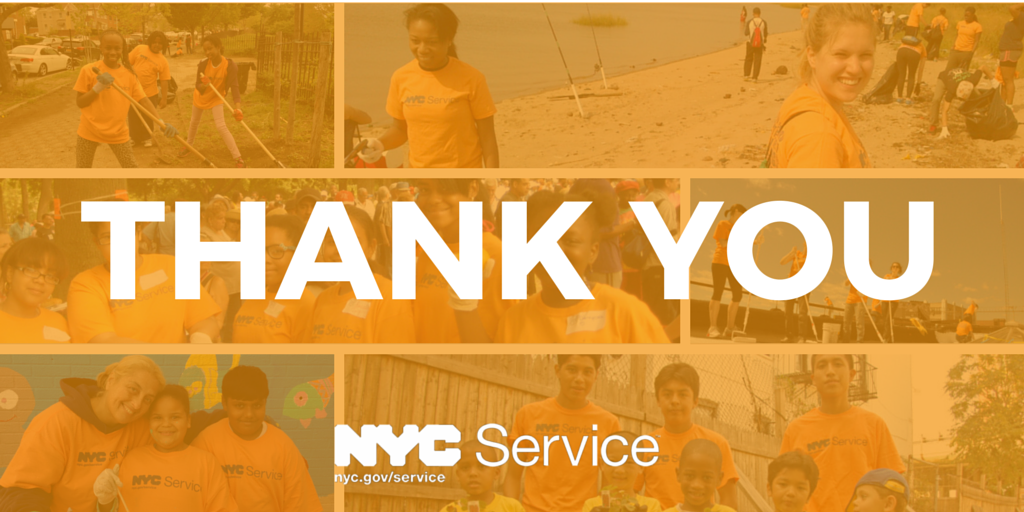
Proof That Saying "Thank You" Matters
Nov 20, 2013

I owe 600 people an apology for not saying thank you.
It’s the holidays – the time of giving back – and as often happens for me, my mind turns to gratitude. But this season I feel a little guilty about 600 volunteers whom New York Cares never thanked. These dedicated New Yorkers helped underserved kids learn to read; gave warm meals to people living on the streets; visited lonely residents of nursing homes, and more. And we never said thank you.
A while back, we received a grant from Points of Light to test strategies to increase volunteer engagement. We had a theory that if we thanked volunteers and let them know we appreciated them, they’d feel even better about their experience and be more likely to do it again. We wanted proof that saying thank you really matters. And we wanted to measure it.
So we did.
We tracked 4,600 volunteers who hit a range of service milestones over the course of a year. We systematically thanked them after their 5th project, after 50 projects, on anniversaries of their years of service, and more. We thanked 4,000 people individually one or more times and let them know we not only noticed, but appreciated, their efforts.
At the same time, we randomly selected a control group of 600 volunteers from the same pool – 13 percent of the total. We didn’t thank these generous New Yorkers at all. We communicated via standard newsletters and other mass correspondence. But not one received an individual, personalized token of thanks.
What happened?
We proved that when we said thank you, people volunteered more. Thanked volunteers completed four more projects during the year, on average, than people we left alone. Volunteers in the recognition group volunteered 15 times during the year; unrecognized individuals just 11 times. Sixteen percent of our total 97,000 volunteer opportunities filled just because we said thanks.
The recognized group also became volunteer leaders at a faster rate: 8 percent versus 6 percent for the non-recognized group. This generated 50 additional Team Leaders ready to start new projects and expand to meet the needs of our Community Partners.
We also measured the impact on our bottom line. Previous cost-analysis work, undertaken with the help of Morgan Stanley, allowed us to calculate the cost of recruiting and training new volunteers. We determined that we saved $40,000 in incremental staff time by filling projects with people who were already volunteers. In a year when funding was tight, 80 percent of our growth came from saying thank you.
To be sure, there are additional factors at play – such as the quality of a volunteer’s experience, personal passion for a cause, whether someone is employed, and more. And saying thank you is not exactly revolutionary. But what is new is being able to prove conclusively that recognition has a tangible impact on volunteer engagement.
So as volunteer ranks swell with people eager to give back in the midst of Thanksgiving celebrations and holiday gift giving, I’m grateful we’ve been able to use studies like this to help New York Cares expand its programs by 20 percent to better serve New Yorkers during a difficult economic time.
And if you’re one of the hard working volunteers we ignored, I hope you can accept this as my public apology. Your time matters.
Thank you!
By Gary Bagley









